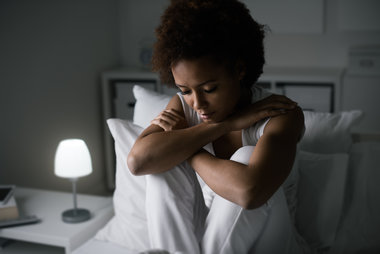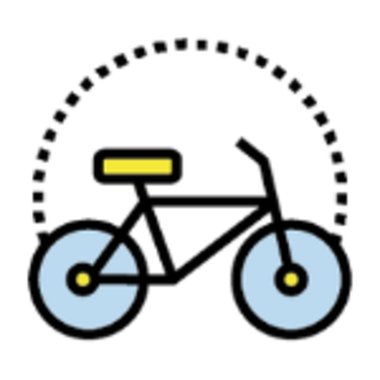16 March 2022
To mark World Sleep Day we’re taking this opportunity to ask - how are you sleeping?
There are many signs of poor sleep patterns. Do you:
- find it difficult to fall asleep?
- lie awake for long periods at night?
- wake up several times during the night?
- wake up early and be unable to get back to sleep?
- feel down or have a lower mood?
- have difficulty concentrating?
- feel more irritable than usual?
- feel like you have not slept well when you wake up in the morning?
Long-term sleep problems can lead you to:
- feel your relationships are suffering;
- struggle to maintain a social life;
- have a hard time doing everyday tasks;
- feel hungrier and snack more;
- feel tired during the day.
What could be causing sleep problems?
There are many reasons why you might not be able to sleep well.
Some people are naturally lighter sleepers or take longer to drop off, while some life circumstances might make it more likely for your sleep to be interrupted, like stressful events or having a new baby.
There are lots of things that can influence our mental health, such as our upbringing, childhood environment, things that happen to us and even our temperament.
The NHS Every Mind Matters campaign has more about what affects our mental health and details of support available for life's challenges. Our Mind & Body programme has rounded up support available for staff and students across the partnership.
How can I improve my sleep?
The NHS’s Every Mind Matters campaign has these tips for a good night of sleep.
![Keep regular sleep hours]() Keep regular sleep hours
Keep regular sleep hours
Going to bed when you feel tired and getting up at roughly the same time helps teach your body to sleep better. Try to avoid napping where possible.
![Confront sleeplessness]() Confront sleeplessness
Confront sleeplessness
If you are lying awake unable to sleep, do not force it. Get up and do something relaxing for a bit, and return to bed when you feel sleepier.
![Create a restful environment]() Create a restful environment
Create a restful environment
Dark, quiet, and cool environments generally make it easier to fall asleep and stay asleep.
![Write down your worries]() Write down your worries
Write down your worries
If you often lie awake worrying about tomorrow, set aside time before bed to make a list for the next day. This can help put your mind at rest.
Move![Move more sleep better]() more, sleep better
more, sleep better
Being active can help you sleep better, but remember to avoid vigorous activity near bedtime if it affects your sleep.
![Put down the pick me ups]() Put down the pick-me-ups
Put down the pick-me-ups
Caffeine and alcohol can stop you falling asleep and prevent deep sleep. Try to cut down on alcohol and avoid caffeine close to bedtime.
Watch the video below for more tips on getting better sleep:
Simple Tips for Better Sleep from Every Mind Matters
What external support is out there for sleep problems?
Seek NHS support if poor sleep is affecting your daily life or causing you distress. You can call NHS 111 or talk to your GP.
Charities, helplines, and communities
How is King’s Health Partners tackling poor sleep?
Last year we heard from the team at the Sleep Disorders Centre within King’s Health Partners, a nationally renowned centre of excellence for the treatment and research of sleep disorders.
One of the huge benefits of the Centre being part of King’s Health Partners is that it helps to drive collaborations and bridge the gap across clinical and research specialisms. It creates more opportunities for the Sleep Disorders Centre to work more closely with colleagues and partners in the Regional Neurosciences Centre and the largest provider of mental health services in the UK.
Liked this article? Explore how King's Health Partners Neurosciences brings together world-class research, education and clinical practice across the partnership to drive improved holistic outcomes for patients living with a wide range of neurological conditions.



 Keep regular sleep hours
Keep regular sleep hours Confront sleeplessness
Confront sleeplessness Create a restful environment
Create a restful environment Write down your worries
Write down your worries more, sleep better
more, sleep better Put down the pick-me-ups
Put down the pick-me-ups

